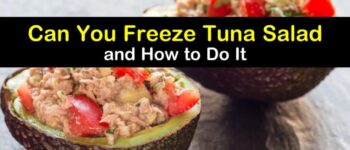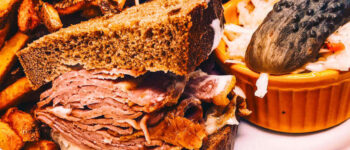A teeth whitening procedure at your dentist’s office can give you a brighter smile than what you can achieve with over-the-counter whitening strips. Being careful about the foods you eat for the first few days after a professional teeth whitening can help you maintain your new, whiter smile for longer.
For 48 hours after a professional teeth whitening, it’s recommended that you avoid acidic, pigmented foods and beverages and stick to things that won’t cause discoloration. This is commonly called the “White Diet”, a short-term diet consisting of white and light-colored foods and drinks. Read on to learn more about the White Diet, what foods you should avoid, and what foods are safe to eat after teeth whitening.
How does the White Diet work?
After professional whitening, your teeth become slightly porous and the dentin layer becomes temporarily exposed. Acidic and dark-colored foods are more easily absorbed into your teeth after whitening, which can cause discoloration.
By following the White Diet for 48 hours after a whitening procedure, you can limit the number of dyes and pigments that come into contact with your teeth until the sensitivity goes away.
Foods and Drinks to Avoid After Teeth Whitening
The foods and beverages below contain natural pigments or artificial dyes that can build up over time and lead to discoloration.
You don’t have to cut out these foods forever. Your teeth are the most sensitive during the first couple of days after a whitening procedure, so many dentists recommend avoiding these foods for only about 2 days.
1. Wine
Both red and white wines can be harmful to the color and enamel of your teeth. Red wine is high in acidity, and the dark pigment makes it likely to cause stains. White wine, even though it’s lighter in color, can also break down enamel.
2. Coffee & Tea
See more : Does FedEx Deliver To PO Boxes?
It may be hard to kick your coffee or tea habit for a few days, but avoiding these drinks can help you avoid one of the biggest sources of stains.
Coffee and tea contain tannins, which can build up over time and darken the color of your teeth. After a professional whitening, when your teeth are at their most porous, tannins can stain even faster.
Limit your coffee and tea consumption for a few days after getting your teeth whitened. If you absolutely can’t go a day without your morning brew, try drinking it through a straw to help minimize contact with your teeth.
3. Soft Drinks
If it fizzes, you might want to steer clear of it. Carbonated drinks are high in sugar and acid, which can strip away tooth enamel. Dark-colored colas can also contribute to surface stains. Avoiding soft drinks even when you’re not following the White Diet can help you have healthier, brighter teeth.
4. Candy & Chocolate
Refined sugars can lead to decay, erosion, and discoloration, especially when your teeth are sensitive after whitening. Be sure to avoid chocolate and artificially-colored candies right after your procedure.
5. Dark Fruits
Dark-colored fruits are rich in pigments that can stain your teeth. If a fruit is particularly acidic, it can also contribute to enamel erosion. It may help to avoid fruits with dark juices, like raspberries, cherries, pomegranates, blackberries, and blueberries. Stay away from juices containing these fruits, too.
Don’t cut healthy fruits out of your diet for too long, though—it’s safe to eat your favorites again 48 hours after whitening.
Foods and Drinks You Can Have After Teeth Whitening
Now that you know what foods you should avoid, here are the foods that are great to eat after having your teeth whitened. Just as the name suggests, these are primarily white-colored foods that have low acidity and are free of the pigments and chemicals that can lead to stains.
1. Fish, Chicken, & Tofu
See more : How Long Does Canned Spam Last? (Shelf Life and Storage Instructions)
Light, lean proteins are healthy in general and great after getting your teeth whitened. Just be cautious of any vibrant seasonings or sauces to go with your protein; instead, stick to white sauces.
2. Rice, Bread, & Pasta
Most grains are safe to have on the White Diet. However, be on the lookout for bread and pasta that lists molasses or food coloring in the ingredients—these are often included to give bread and pasta an artificially darker appearance, which can transfer to your teeth.
3. White Cheese & Yogurt
Skip artificially colored cheeses and sugary, flavored yogurts. White cheeses and plain yogurts are ideal choices for this diet.
4. Fresh Fruits & Vegetables
Light-colored fruits and vegetables are a staple of the White Diet.
Fruits (like pears, bananas, and apples) and vegetables (like cauliflower, potatoes, and mushrooms) are not only healthy for you, but good for your teeth, too!
5. Water
Water is the best drink for hydration, oral health, and smile brightness. Water has no risk of staining your teeth or wearing down your enamel, so it should be your first choice of beverage on the White Diet.
Other Ways to Protect Your Teeth After Whitening
- Quit smoking. Nicotine, whether it’s in a cigarette, chewing tobacco, or an e-cigarette, can cause yellowing of the enamel that can be hard to remove. Quitting tobacco will do wonders not only for your teeth, but your overall oral health as well.
- Regular dental checkups and cleanings. Teeth whitening shouldn’t be the only thing you go to the dentist for—regular checkups and dental cleanings go hand in hand with whitening procedures to keep your smile healthy.
Professional Teeth Whitening in Tampa, FL
Years of drinking coffee, tea, and wine can cause tooth discoloration that resists regular brushing and over-the-counter whitening strips. At Muscaro and Martini Dentistry in Tampa, FL, we use Opalescence whitening technology to remove both surface-level stains and deep tooth stains. Plus, we offer convenient take-home options, too, so you can get professional results without the trip to the office.
Contact Muscaro and Martini Dentistry to schedule a teeth whitening or learn more about our take-home whitening options. We look forward to seeing you!
Nigel Gildon editor:Nigel Gildon is the editor of Chef Wayne’s Big Mamou: Chef Wayne’s Big Mamou. He has worked in the publishing industry for many years and has a passion for helping new authors get their work into the hands of readers. 63 Liberty Street * Springfield, MA 01003






